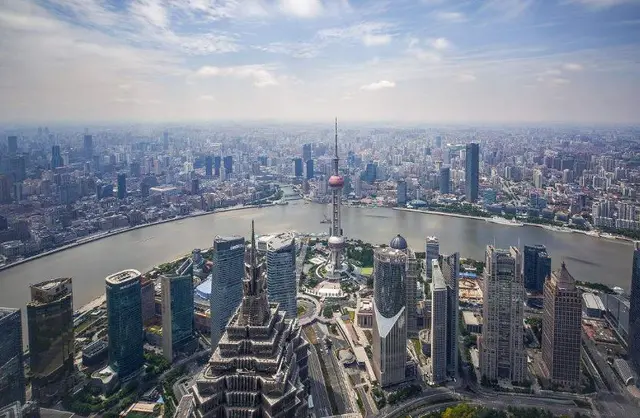The recent high-level meetings between the Democratic People's Republic of Korea (DPRK) and South Korea on the occasion of rare rapprochement ushered in by the DPRK have singled a kind of improvement of relations between the two Koreas.
The inter-Korean meetings took place during a three-day historic visit by a high-ranking delegation dispatched by the DPRK to attend the opening ceremony of the ongoing PyeongChang Winter Olympics in South Korea.
The DPRK delegation wrapped up the visit on Sunday night.
The climax of the visit occurred when Kim Yo Jong, the younger sister and special envoy of top DPRK leader Kim Jong Un, delivered an invitation to South Korean President Moon Jae-in, inviting him to visit Pyongyang.
Moon's positive reaction and the good wills showed by the two sides during and after the meeting have brought hopes to improvement of inter-Korean relations.
Long-awaited visit
It was the first time that a high-level DPRK delegation visited South Korea since October 2014, when the DPRK sent a delegation to Incheon to attend the closing ceremony of the 17th Asian Games.
At the beginning of 2018, a silver lining emerged amid the spat and risk of military conflicts on the Korean Peninsula, as both sides held an official meeting on Jan. 9 to reach an agreement that the DPRK would send a delegation to the 23rd Winter Olympics held in South Korea's PyeongChang.
Besides the Olympics delegation and a cheer group, the DPRK also sent Samjiyon orchestra, a 140-member art group that had presented congratulatory concerts in Gangneung and Seoul on Thursday and Sunday respectively.
The DPRK art group's last visit to South Korea can date back to August 2002, when a delegation of the DPRK political, religious, academic and art representatives came for joint celebrations to mark the Liberation Day, commemorating the overthrow of the Japanese colonial rule on the peninsula on Aug. 15, 1945.
The high-ranking DPRK delegation arrived in South Korea on Friday, including President of the Presidium of the DPRK Supreme People's Assembly Kim Yong Nam and Kim Yo Jong, who also serves as the first vice director of the Central Committee of the ruling Workers' Party of Korea.
Good will from both sides
Before the Olympics opening ceremony, Moon met with the delegation members. He greeted and shook hands with Kim Yong Nam on Friday at a reception in PyeongChang.
On Saturday, during an informal meeting between Moon and the DPRK's Olympic delegation in the Blue House presidential complex in Seoul, which was not disclosed to the media, Kim Yo Jong said the top DPRK leader is willing to meet Moon at an earliest possible date, inviting the South Korean president to visit the DPRK at Moon's convenient time, Moon's spokesman told a press briefing.
In response, Moon said, "Let's create conditions going forward and make it."
The spokesman said Moon and the high-ranking DPRK delegation made a broad range of discussions on inter-Korean relations and issues on the Korean Peninsula "under a friendly atmosphere."
Moon stressed the importance of talks between the DPRK and the United States, saying an early DPRK-U.S. dialogue is necessary to enhance inter-Korean ties.
On the same day, local media reported that Moon dismissed a call by Japanese Prime Minister Shinzo Abe to quickly resume the U.S.-South Korea joint military exercises.
Hope for dialogue
Observers said the delegation's visit opened a channel between the two sides, bringing new hopes to improvement of inter-Korean relations.
The DPRK's invitation was seen as a reach out of Kim Jong Un's sincerity and willingness to Moon Jae-in, although there was no mention of the nuclear issue, South Korean media noted.
The DPRK's official Korean Central News Agency (KCNA) said the atmosphere in the Blue House was "sincere and cordial" with both sides agreeing to keep the momentum of rapprochement in inter-Korean relations since the beginning of the year.
However, the eased inter-Korean relations didn't change the U.S. stance, as U.S. Vice President Mike Pence avoided interaction with the DPRK officials in PyeongChang.
Pence revealed that while keeping maximum pressure on the DPRK, the United States and South Korea agreed to further engage with Pyongyang, the Washington Post reported on Sunday.
Lee Sang-man, a South Korean researcher in the Institute for Far Eastern Studies, Kyungnam University, told Xinhua that all relevant parties should broaden their channel for dialogue and foster a peninsula peace agreement as soon as possible.
Moon's visit is highly possible, if South Korea and the United States downscale joint military exercises, and the DPRK agrees to freeze its nuclear weapon program, he added.
(ASIA PACIFIC DAILY)
 简体中文
简体中文

